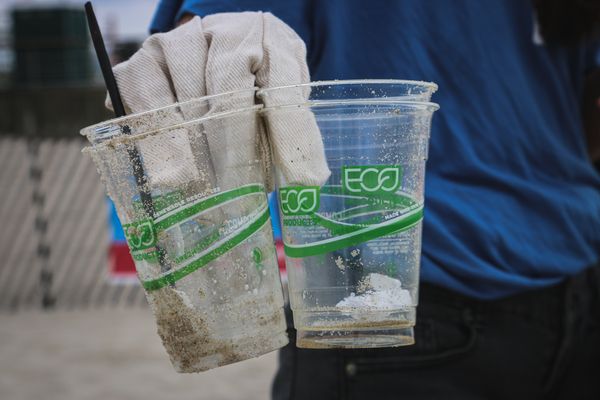I believe my generation has an acute perception of the future climate crisis that seems to be inevitably creeping closer to us. I see a lot of “eco-anxiety” within Gen-Z, which manifests in subtle ways, such as how we spend our money. I claim that the concern over the future implications of the climate crisis that Gen-Z collectively empathizes over has shifted the way companies are choosing to advertise their brands and portfolios of products.
I am not the only one with this perception. A report by McKinnley back in 2018 caught on to something important—that Gen-Z is willing to shell out more money for ethical products that align with their values. The purchasing power of Gen-Z is steadily increasing with time; thus, they are taking up a larger proportion of the overall market share of consumers that want to shop with a clear conscious. More recently, CNBC published an article with the headline “The environment is Gen-Z’s number 1 concern - and some companies are taking advantage of that,” which brings to light a report done in 2020 by First Insight that “73% of Gen-Z consumers that were surveyed were willing to pay more for sustainable products, more than every other generation.” That is important information for companies and vendors to recognize and react to—if they wish to grow their profit margins.
It is clear today, through the very public actions made by well-known institutions, companies, and people, that the public eye has favored whoever is on the side of being environmentally conscious. The most recent very public example of this is of Yvon Chouinard, the founder, and owner of Patagonia, who has received a lot of positive press ever since he “gave away” his billion-dollar company to fight the climate crisis. The founder transferred his ownership to the Patagonia Purpose Trust and the nonprofit Holdfast Collective, which will ensure all future profits go “toward combating the climate crisis and protecting undeveloped land across the world.”
With extreme public displays of environmentalism, some good is certainly coming from adopting climate awareness. However, not everyone is as well-intentioned as Yvon Chouinard. Some companies are sneaky and seek to capitalize on the shift in the younger generations' consumerist mentality by marketing themselves as being environmentally conscious - but when investigated by independent parties, it is clear that it is nothing but a clever marketing ploy. Companies that use this front have not acted to make viable changes to combat a potential climate disaster but instead are choosing to capitalize on the environmentally friendly trend. The practice I am referring to has a name: Greenwashing.
According to Earth.org, “Greenwashing is essentially when a company or organization spends more time and money on marketing themselves as being sustainable than on actually minimizing their environmental impact. It's deceitful advertising to gain favor with consumers who support businesses that care about bettering the planet."

A recent example of a company called out for Greenwashing is H&M. An investigational exposé reported by Quartz and further publicized by Forbes called out H&M’s usage of scorecards on their website to rate the sustainability of their products. Many of these score cards advertised products as being sustainable but contained false information about the validity of their claims. In the article, Quartz highlights how “most baseline items are listed as sustainable, but with impact values of zero," meaning there is no tangible, sustainable benefit.
So what can we do to prevent ourselves from falling into the green-washing trap?
There are countless examples of Greenwashing wherever you look. Unfortunately, due to Gen-z’s collective environmentally conscientious mindset, we are the group that is most susceptible to falling into these deceitful marketing tactics. Brands recognize that the majority of Gen-Z is willing to pay “a 10% increase in price” for sustainably made products, according to the First Insight report.

I spoke with Furman University’s Eco Rep Fellow, partnered with the Shi Institute for Sustainable Communities, Kylie Gambrill, to discover more about what Gen-Z can do to stay vigilant.
“Look out for buzz words; that is huge. Also, take into account a company's moral standpoint… One of the best things people can do is look for certain certifications such as Rainforest Alliance, B-Corp, and USDAOrganic. Part of it is just taking some time to do extra research and being cognizant of the influence of your purchasing power. A website that I use is betterworldshopper.org.”

Remaining vigilant of the widespread greenwashing that goes on behind the scenes, as well as to how susceptible we are as Gen-Z specifically to targeted marketing can help prevent brands from taking advantage of our generation.
